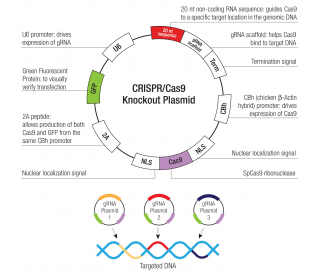Purity
>97%, by SDS-PAGE under reducing conditions and visualized by silver stain
Endotoxin Level
<0.01 EU per 1 μg of the protein by the LAL method.
Activity
Measured in a cell proliferation assay using TF‑1 human erythroleukemic cells. Kitamura, T. et al. (1989) J. Cell Physiol. 140:323. The ED 50 for this effect is 1-4 ng/mL.
Source
E. coli-derived Ala18-Lys144
Accession #
N-terminal Sequence
AnalysisAla18
Predicted Molecular Mass
14.2 kDa
Carrier Free
What does CF mean?
CF stands for Carrier Free (CF). We typically add Bovine Serum Albumin (BSA) as a carrier protein to our recombinant proteins. Adding a carrier protein enhances protein stability, increases shelf-life, and allows the recombinant protein to be stored at a more dilute concentration. The carrier free version does not contain BSA.
What formulation is right for me?
In general, we advise purchasing the recombinant protein with BSA for use in cell or tissue culture, or as an ELISA standard. In contrast, the carrier free protein is recommended for applications, in which the presence of BSA could interfere.
1546-GM |
| 1546-GM/CF |
Formulation Lyophilized from a 0.2 μm filtered solution in PBS with BSA as a carrier protein. | Formulation Lyophilized from a 0.2 μm filtered solution in PBS. | |
Reconstitution Reconstitute at 100 μg/mL in sterile PBS containing at least 0.1% human or bovine serum albumin. | Reconstitution Reconstitute at 100 μg/mL in sterile PBS. | |
Shipping The product is shipped at ambient temperature. Upon receipt, store it immediately at the temperature recommended below. | Shipping The product is shipped at ambient temperature. Upon receipt, store it immediately at the temperature recommended below. | |
Stability & Storage: Use a manual defrost freezer and avoid repeated freeze-thaw cycles.
| Stability & Storage: Use a manual defrost freezer and avoid repeated freeze-thaw cycles.
|
Background: GM-CSF
GM-CSF was initially characterized as a factor that can support the in vitro colony formation of granulocyte-macrophage progenitors. It is also a growth factor for erythroid, megakaryocyte, and eosinophil progenitors. GM-CSF is produced by a number of different cell types (including T cells, B cells, macrophages, mast cells, endothelial cells, fibroblasts, and adipocytes) in response to cytokine or inflammatory stimuli. On mature hematopoietic cells, GM-CSF is a survival factor for and activates the effector functions of granulocytes, monocytes/macrophages, and eosinophils (1, 2). GM-CSF promotes a Th1 biased immune response, angiogenesis, allergic inflammation, and the development of autoimmunity (3 - 5). It shows clinical effectiveness in ameliorating chemotherapy-induced neutropenia, and GM-CSF transfected tumor cells are utilized as cancer vaccines (6, 7). The 22 kDa glycosylated GM-CSF, similar to IL-3 and IL-5, is a cytokine with a core of four bundled alpha -helices (8 - 10). Mature canine GM-CSF shares 49% - 57% amino acid sequence identity with mouse and rat GM-CSF and 69% - 72% with feline, human, and porcine GM-CSF. GM-CSF exerts its biological effects through a heterodimeric receptor complex composed of GM-CSF R alpha /CD116 and the signal transducing common beta chain (CD131) which is also a component of the high-affinity receptors for IL-3 and IL-5 (11, 12). In addition, GM-CSF binds a naturally occurring soluble form of GM-CSF R alpha (13). The activity of GM-CSF is species specific between human and mouse, although human GM-CSF is active on canine cells (14, 15).
References:
Martinez-Moczygemba, M. and D.P. Huston (2003) J. Allergy Clin. Immunol. 112:653.
Barreda, D.R. et al. (2004) Dev. Comp. Immunol. 28:509.
Eksioglu, E.A. et al. (2007) Exp. Hematol. 35:1163.
Cao, Y. (2007) J. Clin. Invest. 117:2362.
Fleetwood, A.J. et al. (2005) Crit. Rev. Immunol. 25:405.
Heuser, M. et al. (2007) Semin. Hematol. 44:148.
Hege, K.M. et al. (2006) Int. Rev. Immunol. 25:321.
Kaushansky, K. et al. (1992) Biochemistry 31:1881.
Diederichs, K. et al. (1991) Science 254:1779.
Nash, R.A. et al. (1991) Blood 78:930.
Onetto-Pothier, N. et al. (1990) Blood 75:59.
Hayashida, K. et al. (1990) Proc. Natl. Acad. Sci. USA 87:9655.
Pelley, J.L. et al. (2007) Exp. Hematol. 35:1483.
Shanafelt, A.B. et al. (1991) J. Biol. Chem. 266:13804.
Hogge, G.S. et al. (1990) Cancer Gene Ther. 6:26.
Long Name:
Granulocyte Macrophage Growth Factor
Entrez Gene IDs:
1437 (Human); 12981 (Mouse); 116630 (Rat); 397208 (Porcine); 403923 (Canine); 493805 (Feline)
Alternate Names:
colony stimulating factor 2 (granulocyte-macrophage); Colony-stimulating factor; CSF; CSF2; GMCSF; GM-CSF; GMCSFgranulocyte-macrophage colony-stimulating factor; granulocyte-macrophage colony stimulating factor; MGC131935; MGC138897; molgramostin; sargramostim










